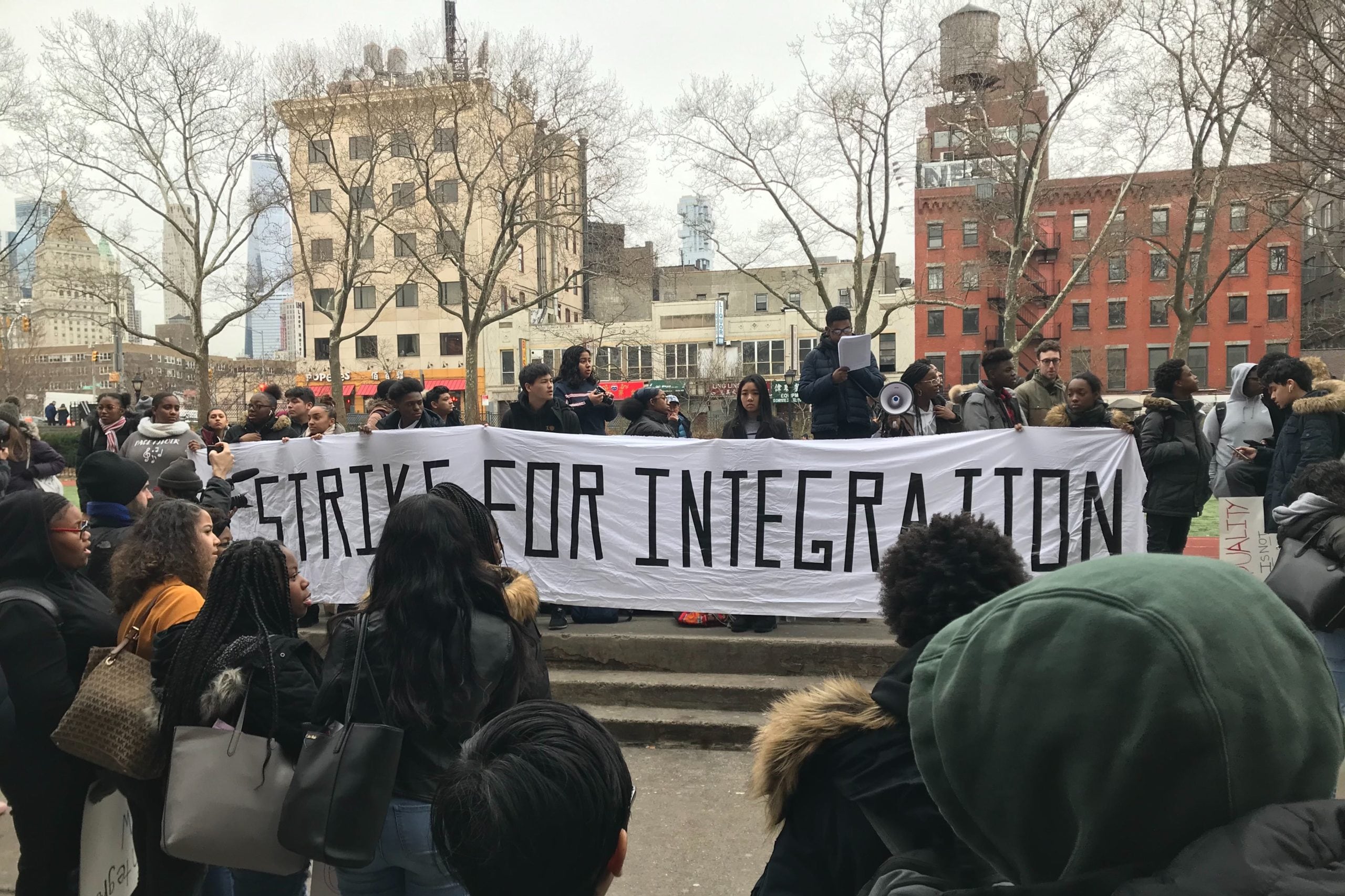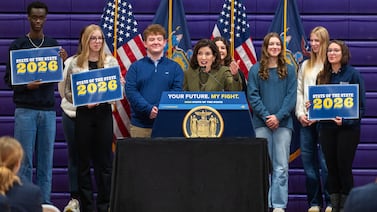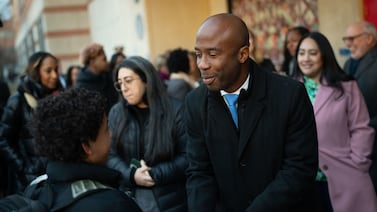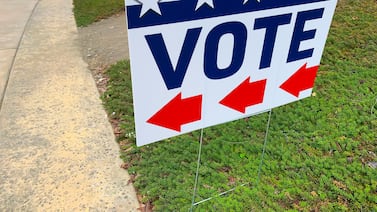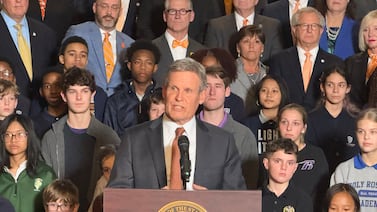New York City’s gifted and talented program helps perpetuate “a racist caste system” in the city’s public schools, according to a lawsuit filed in March that continues to wind its way through the state’s court system.
Despite Mayor Bill de Blasio’s announcement last week that the city plans to end the practice of testing 4-year-olds for the gifted program, the plaintiffs in the case are still challenging other admissions policies they believe contribute to the system’s segregated schools.
“I feel like it’s definitely a step in the right direction,” said plaintiff N.N., a Bronx high school senior who asked to be named by his initials, the same way he is named in court documents, to protect his identity.
The gifted exam is seen as the first of several policies excluding Black and Latino children from coveted programs: They fill only 14% of gifted seats, but account for nearly 60% of kindergartners citywide. But both middle schools and high schools that base admissions decisions on test scores, including eight of the nine specialized high schools, can be exclusionary along racial lines, the student said.
Only 9% of offers for specialized high school seats, based on test scores for this year’s incoming freshmen, went to Black and Latino students.
“Until there’s amends to those kinds of admissions, I can’t say the system is fixed,” N.N. said.
N.N. is among more than a dozen NYC public school students who, along with nonprofit organization IntegrateNYC, filed the lawsuit in Manhattan Supreme Court nearly seven months ago. Named defendants in the suit include de Blasio, Chancellor Meisha Porter, and the state of New York.
Though de Blasio is named in the suit, the next mayor will likely determine the fate of the city’s gifted program. Eric Adams, the Democratic mayoral nominee and presumptive winner, said on CNN on Friday that he would keep the city’s gifted program and expand it. He has previously expressed support for keeping the test in place, and on Friday noted that students should be able opt out of it rather than the current opt-in practice.
Even if the gifted test is eliminated, it is unlikely to have a direct impact on the outcome of the case, according to some legal experts.
Plaintiffs’ argument that the state and city deny students their state constitutional right to a “sound, basic education” is built upon a series of points, only one of which relates to the gifted test.
Still, Michael Rebell, an education attorney and executive director of the Center for Educational Equity at Columbia’s Teachers College, believes the plaintiffs are facing an “uphill battle” in the ongoing lawsuit. He questions whether the court will agree with plaintiffs’ interpretation of “sound, basic education.”
“The Court has never applied [sound, basic education] to an integration context,” he said. “They’ve never interpreted the phrase the way the plaintiffs would like them to interpret it. So you might say this is a test case to see if the courts are willing to expand the concept of what sound basic education is.”
Both the city and state are seeking to have the lawsuit dismissed. Another group, called Parents Defending Education, has filed a separate motion to dismiss the case.
The group, a nonprofit organization based in Arlington, Va., bills itself as a national grassroots organization seeking to “prevent the politicization of K-12 schools.” The organization was incorporated in January, according to court documents, and has filed multiple civil rights complaints against school districts that are vowing to tackle racism and white supremacy in their schools. On its website and in op-eds, leaders of the organization raise concerns about critical race theory and “toxic” curricula entering classrooms across the country.
The group successfully intervened as a defendant in the IntegrateNYC case, arguing that members who have children in NYC public schools would be harmed if school admissions policies are changed. Such members are not named in legal documents and are instead noted as “Parents A-F.”
They say their children intend to apply to the city’s most selective public schools, including the prestigious specialized high schools, precisely because they are selective and rigorous.
Parents Defending Education called school admissions policies “race-neutral” and said there is no legal basis to change them.
Neither Parents Defending Education nor the attorneys representing the group responded to requests for comment.
The group’s filing frustrated Sarah Medina Camiscoli, a former Bronx public school teacher who founded IntegrateNYC. “This is not a lawsuit against parents,” she said. “This is a lawsuit against the city and the state of New York for running a school system that essentially starts to function like a private school system.”
In addition to admissions policies, the lawsuit charges that by failing to maintain a diverse workforce and by allowing schools to teach a “Eurocentric” curriculum, the public school system perpetuates racism.
In an interview with Chalkbeat, 17-year-old N.N. recalled a memory from his ninth grade world history class at University Heights High School in the Bronx. His teacher, a Black man, randomly divided students into groups representing different continents, then asked them to flip through their textbook, and identify the chapters associated with that particular part of the world.
“Needless to say, the kids assigned to Europe found their chapters in a heartbeat,” said N.N. Meanwhile, students assigned to Africa, Asia, or South America struggled to find relevant content between the many pages devoted to European history, he recalled.
He said he believes textbooks and literature used in history classes and English classes need to more accurately represent “the diversity of New York City” — a feeling that helped motivate him to join the lawsuit.
Currently, plaintiffs are working on their response to the multiple motions to dismiss the case. Mark Rosenbaum, lead attorney on the case, said plaintiffs plan to file their response by mid-December.

